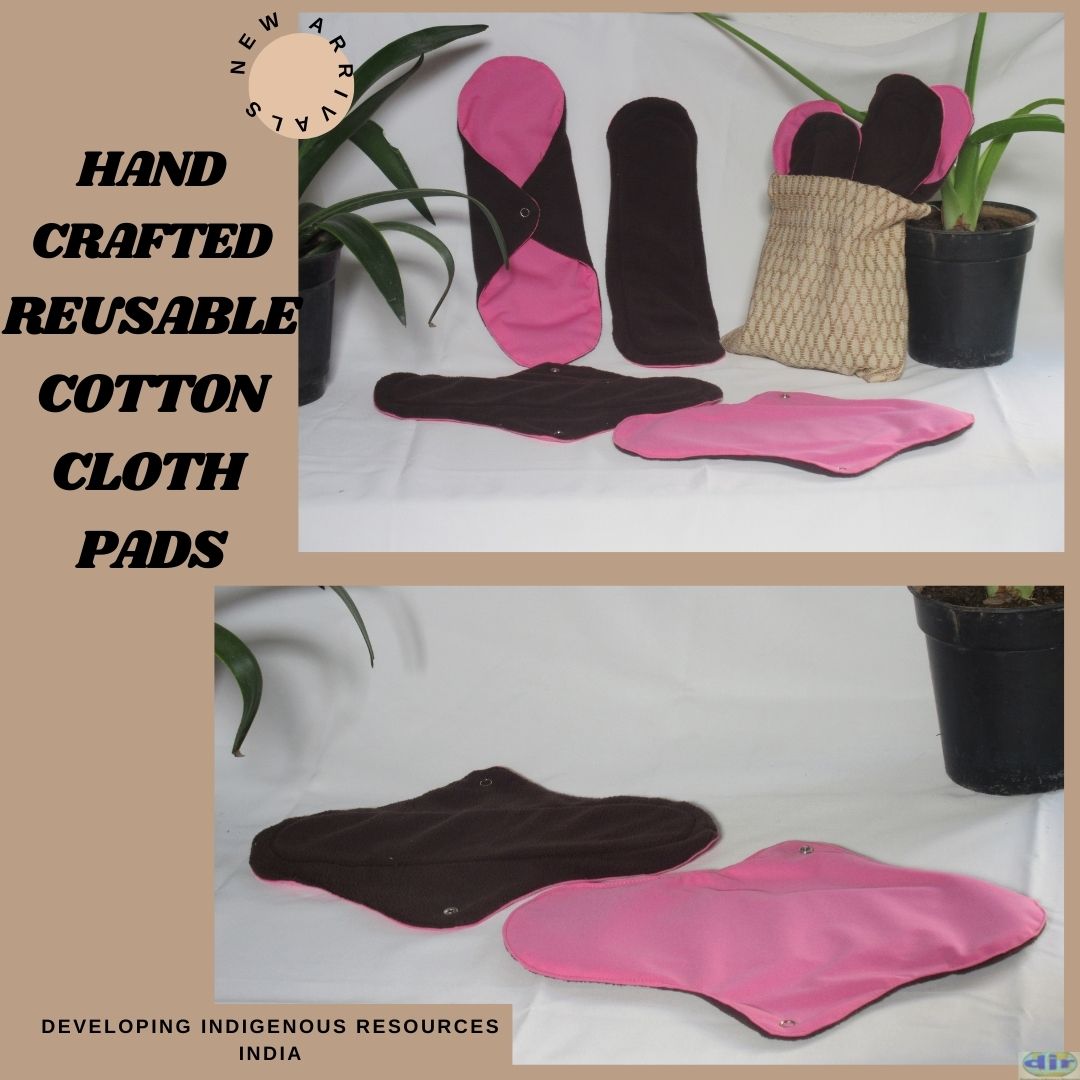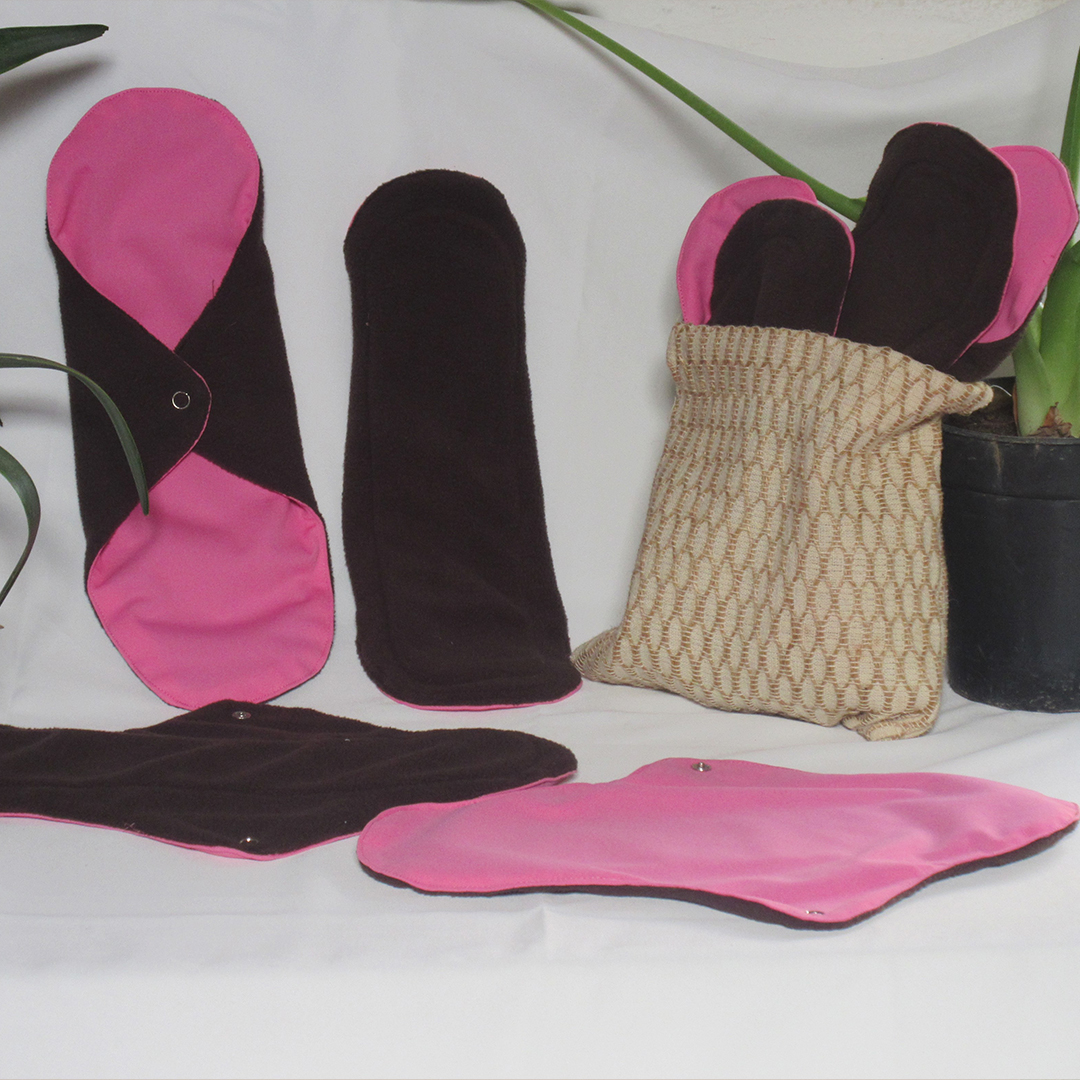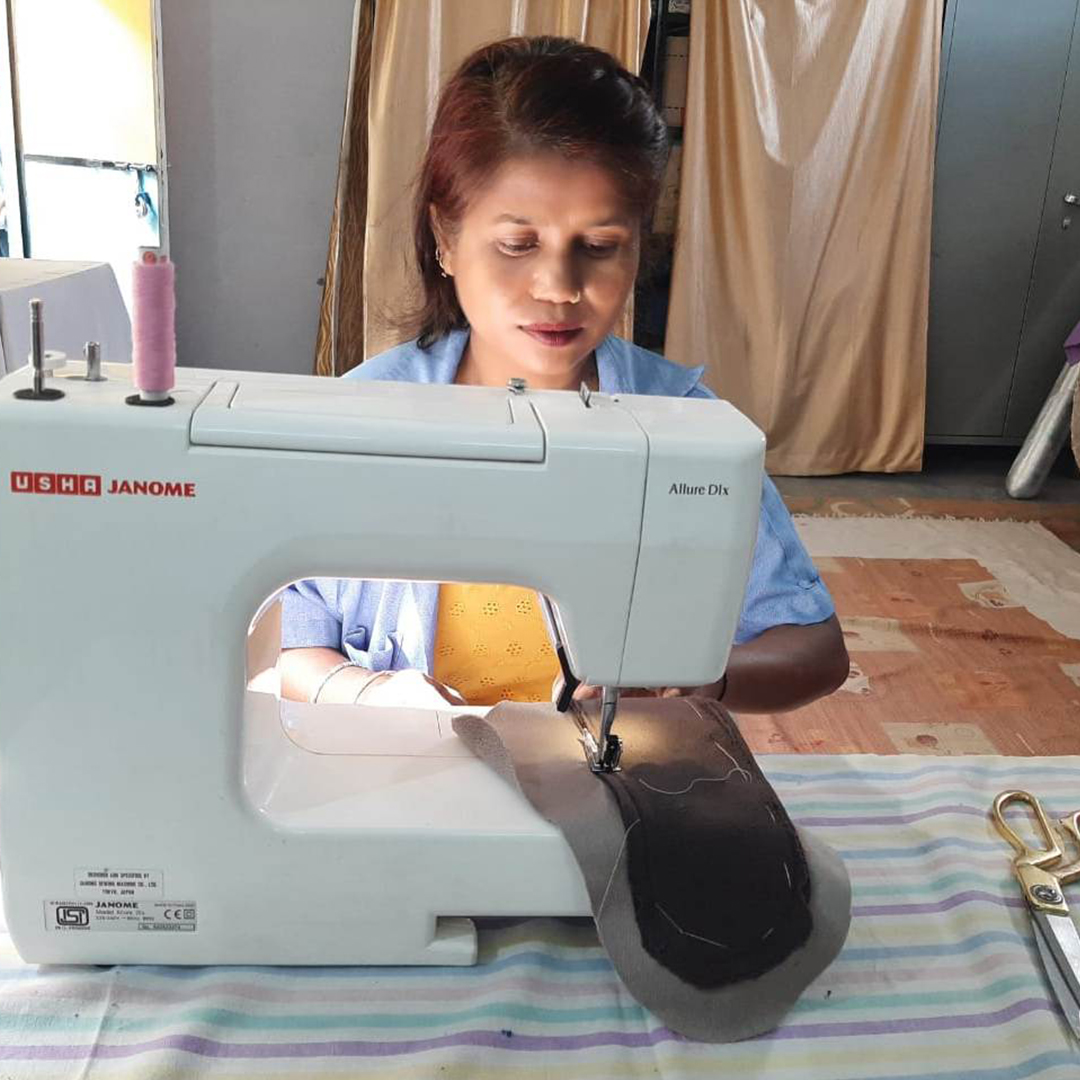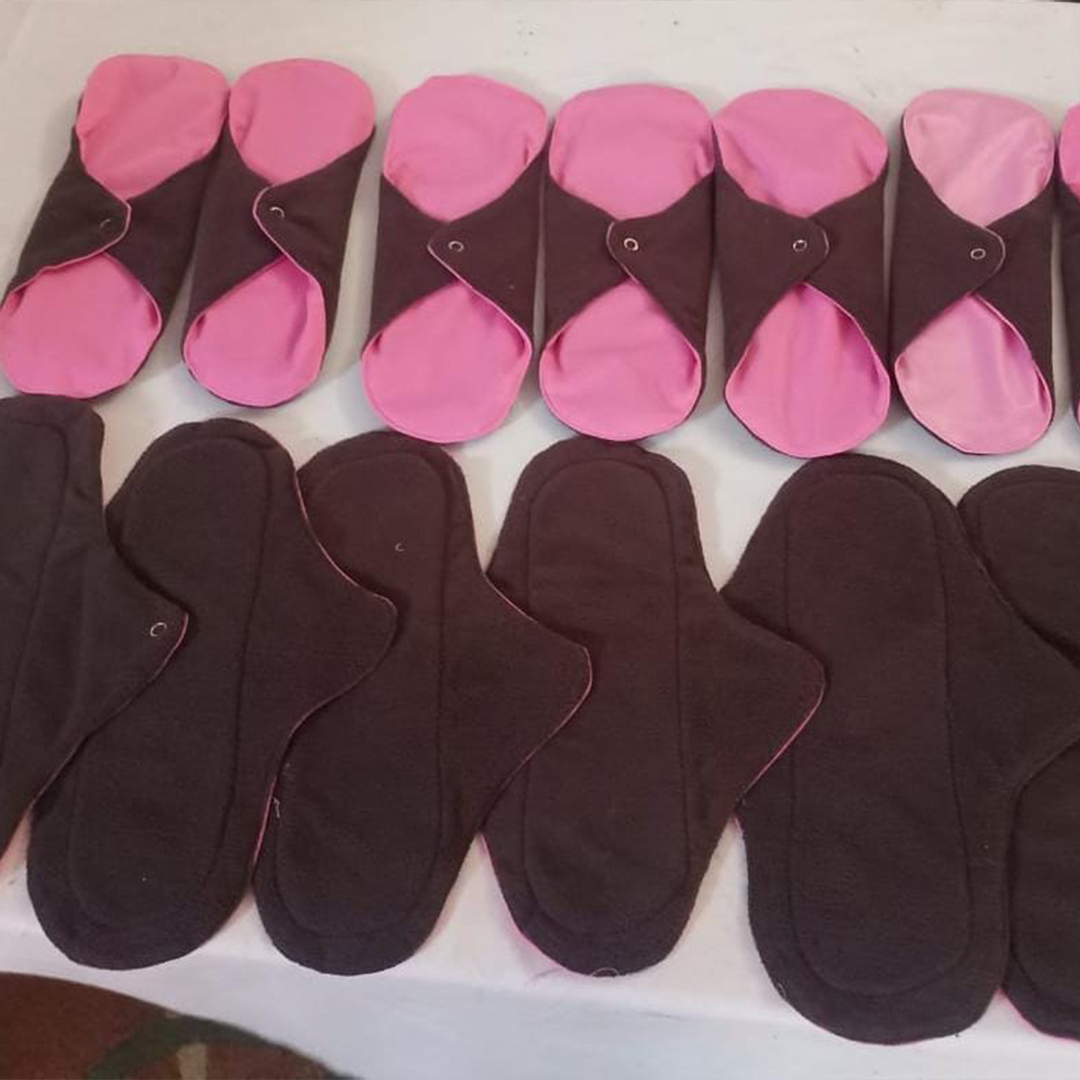- [email protected]
- Monday - Friday: 09.00 AM - 05:00 PM
TAILORING
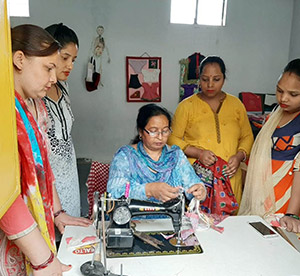
MINISTRY OF SKILL DEVLOPMENT
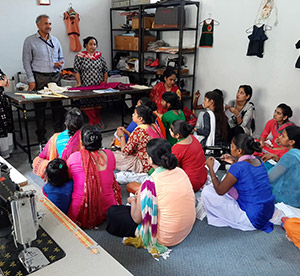
NEW MACHINES
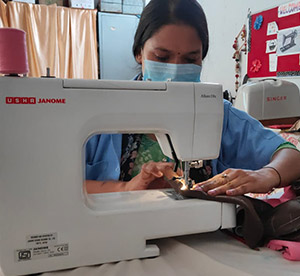
PADS / PRODUCTS /EXHIBITION

WOMEN EMPOWERMENT
Income Generation Program for Women
The main goal of our income generation program is to empower women to become financially independent so that she can fulfill her personal needs and can raise the socio-economic status of her family. By providing vocational training to girls and women, DIR increases their chances of employability and self-employment. Despite being a bustling town of some 16,000 residents, Janta Colony offers few opportunities to earn a living – particularly for women. After working in the community for a short time, DIR became aware that many women leave before dawn to work as house cleaners or street vendors in Chandigarh.
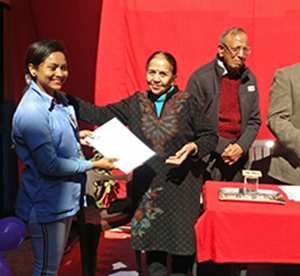
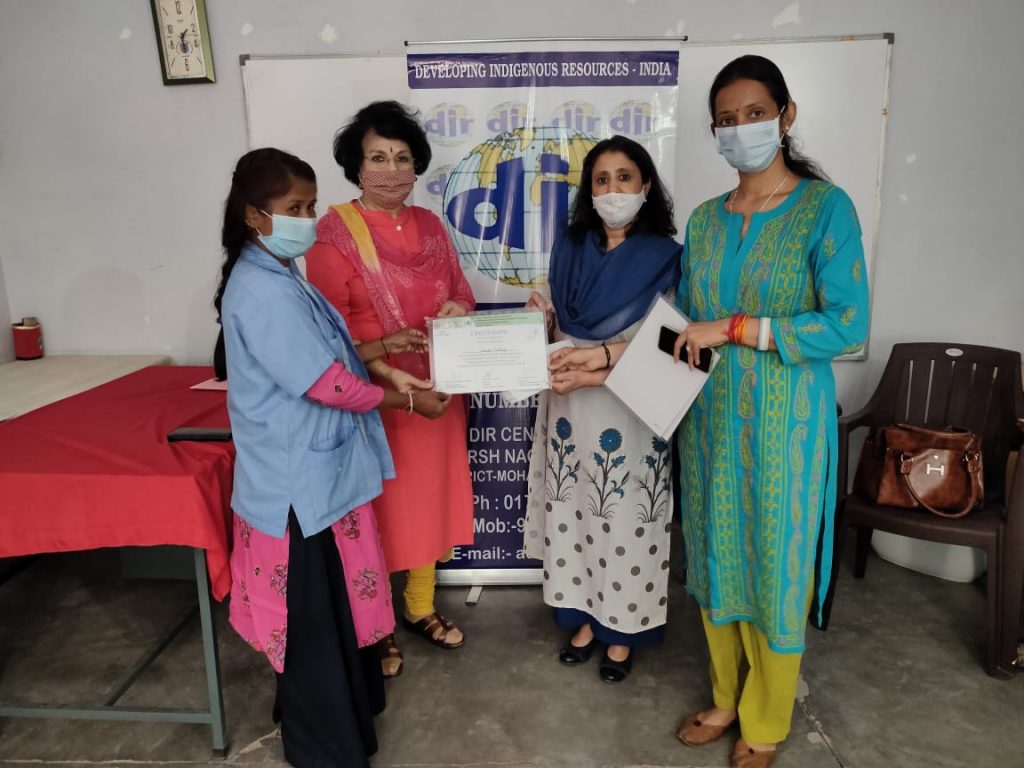
Often, they don’t return until late in the evening. In the meantime, they leave their eldest child to care for younger siblings. The impact of this quickly became clear: HPs noted very little weight gain among children in households where mothers were absent most of the day. To address this issue, DIR sought to create cottage industries that would allow Basti women to make a fair wage while working flexible hours at home. This would allow them to spend more time with their families and better benefit from DIR’s services, such as cooking classes. With donated sewing machines and samples supplied by fabric and upholstery stores, DIR launched stitching classes in 2010. In keeping with its cost-recovery policy, DIR asked the women to pay for classes but set up a system by which the women could sell items made during class to recoup the enrollment fee. It is a six-month course, with classes held in the morning or evening. The course includes professional training on stitching all types of fabric and patterns. Those who complete the course have the option to take a sewing machine home and work independently. They are paid cash upon delivery of each item made. The sale of these products not only give women work, but it brings additional profits to support the broader work of DIR.
DIR statistics show that when women begin to earn an income, it elevates their status and decision-making authority in the family and in the community. It is also clear that women direct the majority of their income to better nourishment and education for their children.
Enabling these “work at home” opportunities was a game-changer for many families: children who had previously been chronically malnourished began to gain weight more quickly and were less burdened with caring for their siblings.
The team has been working to train and empower the ladies in slums of Janta Colony, Nayagaon, District Mohali, A four month Tailoring course affiliated with the Ministry of Skill Development is regularly running for the community members. A team of examiners from the Ministry of skill Development came to take the exam. On 5th November 2019 Director Mr. Arjun Kambhoj personally came to reward 22 underprivileged women with certificates.
DIR-I is extremely grateful to Versatile Textile Limited for donating two Hi-Tech Industrial Sewing machines costing Rs 40,000 from Usha International Ltd.
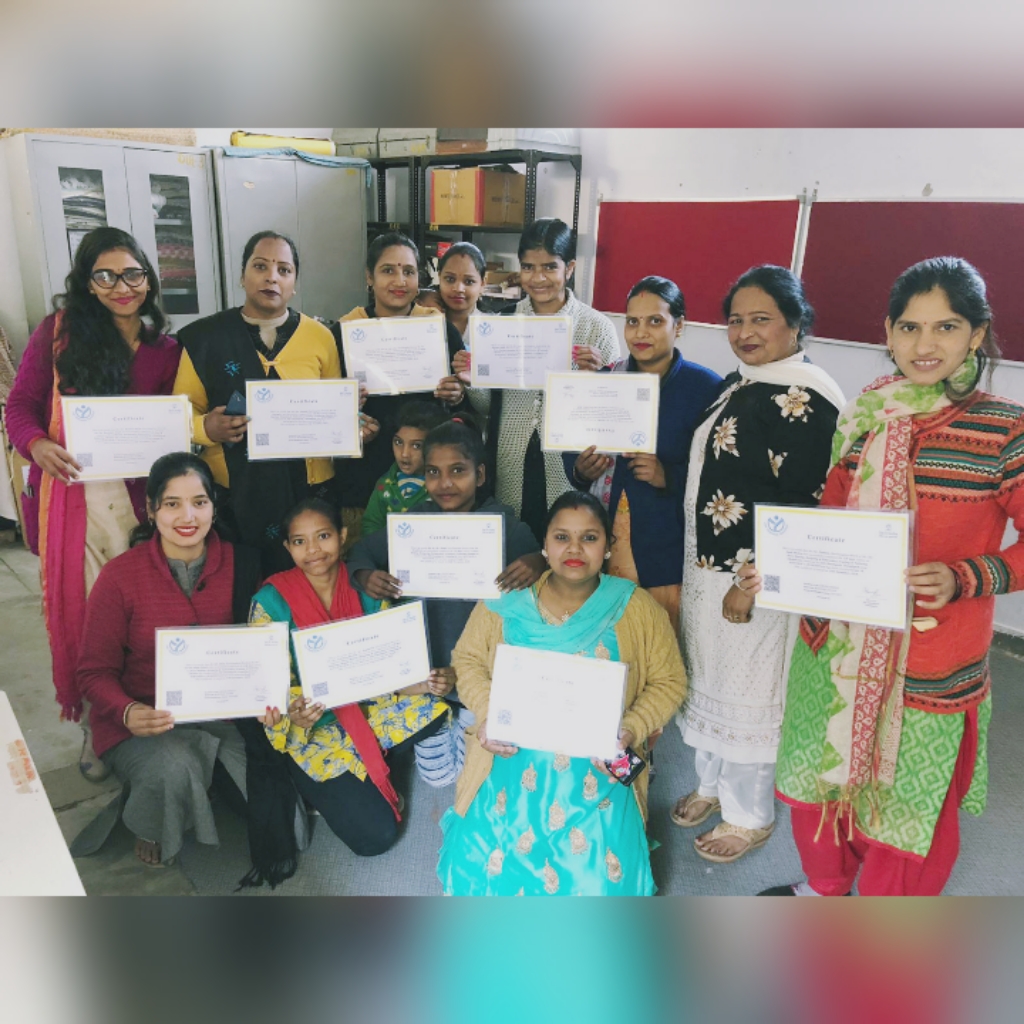
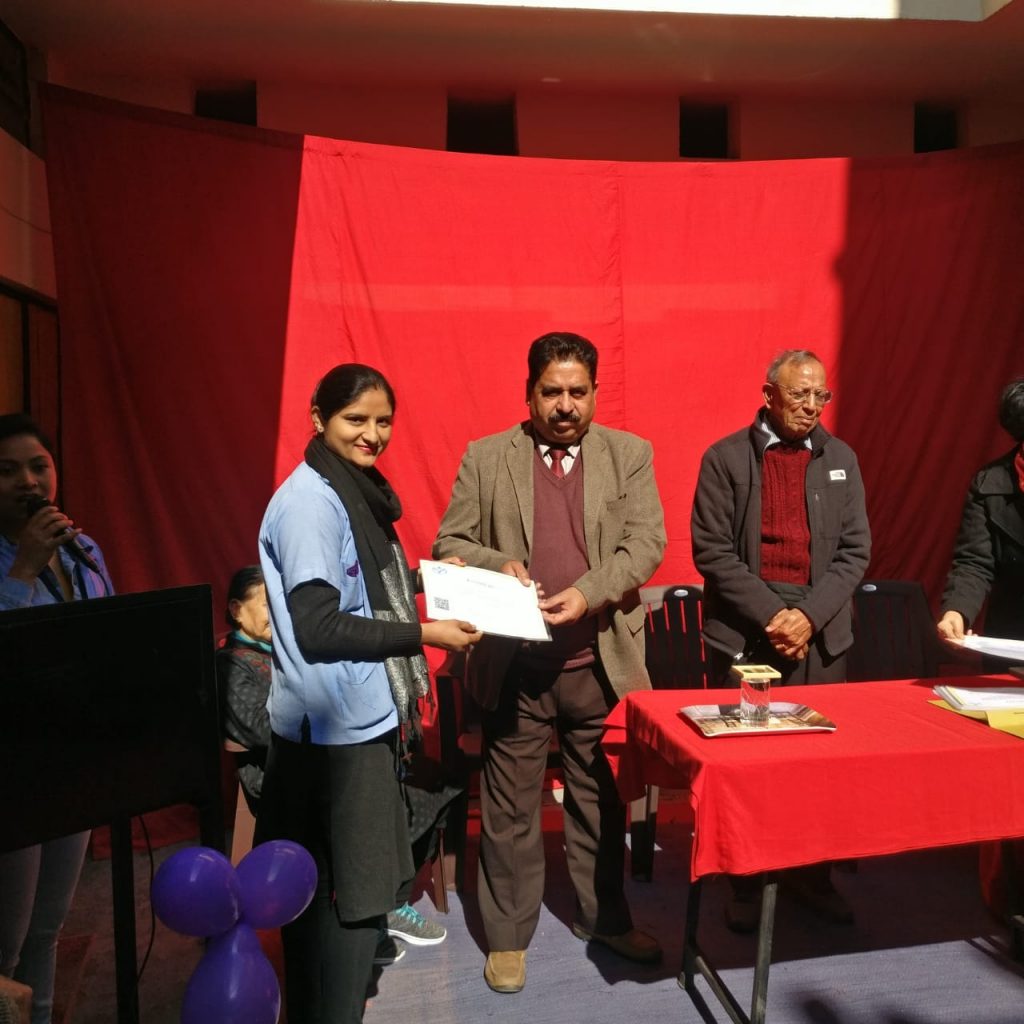
These machines will improve the stitching skills of our tailoring program, which will help the Basti women for more job opportunities.
To help the needy with an optimistic attitude and dynamism has always been our drive towards the growth and development of weaker communities and leading
As part of our Income Generation Project, DIR sold cloth bags, Laptop Bags, Sling Bags Scrunches etc. Made by our tailoring students since Chandigarh has been declared a polythene-free city, the sale and popularity of cloth bags has increased considerably.
ROZGAR HAMARA VYAPAAR
On 4th January 2021, DIR-INDIA launched a new program “ROZGAR HAMARA VYAPAAR” for underprivileged women of Janta Colony, Nayagaon, Punjab.
It is a self-sustaining project as spices are used in every Indian home in daily cooking. The raw material is bought from vendors in the wholesale market and sold at a marginal profit after cleaning, grinding, weighing, and finally packing.
Our prime aim has always been generate employment for underprivileged women of the Basti.
Stories of Women who were given sewing machines:

Sapna, w/o Late Mr Ajay, is 50 years old and lost her husband at a young age.
She has a daughter, who has graduated and is now working.
Sapna studied till 12th and has done Tailoring and fashion designing from I.T.I Institution in sector 11 Chandigarh.
She lives with her mother and Brother in # 290, Gobind Nagar, Nayagaon.
Sapna runs her own boutique in a rented shop to generate income for her livelihood
Manju, 40 years old, has a tragic family life.
Her elder son, Ansh aged 10, is studying in Government Model School in Sector 10 Chandigarh. In 2022, He got a fever. The parents, out of ignorance, consulted a quack, a self styled doctor living in the neighborhood. The child started losing muscle power from all the limbs and finally got paralyzed from all four limbs. He was hospitalized for 6 months in PGIMER, Chandigarh. With the course of treatment and physiotherapy and close monitoring, child showed signs of improvement, Ansh finally got discharged. He was bedridden for one year. Physiotherapy and treatment continued and gradually mild strength in limbs started appearing. He can now stand and walk slowly. He resumed his education and started attending classes in Government Model School, Sector 10, Chandigarh.
Father is a painter but erratic and irresponsible by nature.He keeps on changing jobs and does not contribute much.


Rajkumari is from Bihar.
She lives in Janta Colony with her husband and two children. Her both the children were malnourished. These children were included in our NIPP feeding program. She was a case of Domestic violence.DIR employed her as a maid. Her children were admitted to our SWAD School under the project ALAMBANA
She has studied ill 8th standard and they live in a rental room. She is keen on stitching and wants to earn additional money through tailoring.
Ritu, 30 years of age, lives with her husband Ashok Singh in a rental room in Tejja Singh Market, Nada Road, Nayagaon. She has studied till 10th class. The couple is married for 11 years but have no children. Currently, she is attending tailoring courses.
She is training in stitching and sewing to help her husband generate funds for their livelihood. Her husband is a laborer.



25 years old, Rupa lives with her husband, who is dumb and deaf. He works in a hotel as a helper. They have two children (twins). They live in a 1 room set in Janta Colony. The family is from U.P and the couple has been married for the last 8 years. She wants to learn stitching to generate some money for their family
35 years old Shanti lives with her husband who is a gardener. They have two children. They stay in a rental room in Janta Colony. The family belongs to U.P. The income is not sufficient for the family of four as her husband remains ill most of the time.



32 years old Reena is educated till 7th class. She lives in Janta Colony with her husband and two children in a rented room.Her one child is a special child. This family is from Haryana. Her husband is a laborer (jamadaar).
Both her children are studying in SWAD School under the project ALAMBANA.
30 years old Radhika is a widow and cancer survivor. She has 2 children, one of which is physically handicapped (daughter). They live in Janta Colony. Both her children are Alumni of our SWAD School. Now they are studying in Govt model school, Sector 12, Chandigarh. She lives with her children and brother. Her brother is an earning member. She has her own house. She has given one room on rent to generate money for her livelihood. She has studied till 8th class and the family belongs to U.P.


35 years old Ramrati is a widow. She has 2 children and lives with her in-laws in Janta Colony. She has studied till 5th class. The family hails from U.P. Father In-law works as a helper in a cloth shop and she works in a tailoring shop as a helper to make some money for her children.
ROZGAR HAMARA VYAPAAR
ROZGAR HAMARA VYAPAAR- for underprivileged women of Janta Colony, Nayagaon, Punjab. It is a self-sustaining project as spices are used in every Indian home in daily cooking. The raw material is bought from vendors in the wholesale market and sold at a marginal profit after cleaning, grinding, weighing, and finally packing. Our prime aim has always been to make the organization financially stable and generate employment for underprivileged women of the Basti.
In January, ROZGAR HAMARA VYAPAAR promoted the sale of Spices and Masala generating marginal profits for the organization.
The DIR team has to work on the marketing skills to promote awareness and gain popularity among the residents living in and around Chandigarh. The products are pure, cleaned and freshly packed.
REUSABLE WASHABLE SANITARY NAPKIN
Developing Indigenous Resources India is collaborated with CSR Project Amodini of Versatile Enterprises Private Limited and Team Enactus is now venturing into making cotton/bamboo fabric based reusable, affordable and eco-friendly sanitary napkins, an alternative to plastic based sanitary napkins. The need was felt as most of the sanitary pads have 90% plastic and each pad is equal to 4 plastic bags. It takes nearly 500-600 years for a single sanitary pad to decompose. This project is aimed at conserving the environment and is a viable solution to reduce the plastic menace and in turn helping to provide a steady income to the destitute ladies working under project
Our Objectives:-
- The motive behind launching cloth pad is because its made of skin friendly cotton material, which makes it skin friendly, washable and reusable plus no rashes and no spotting because it has been tested and verified by the laboratory. The cloth used in making this pad is soft and thin, washing and drying is does not affect its quality and its fresh as new even after multiple wash, as per the women who have used it and are our satisfied customers.
- A single commercially available non organic sanitary pad (commonly available popular brands) takes up to 800 years to decompose or may even never decompose at all plus each pad contains plastic which is equivalent to around 4 plastic bags. It’s high time that we all must consider and acknowledge the fact that disposable sanitary pads are one of the leading cause of environmental pollution plus leading cause of health hazards because of poisonous chemicals produced from these pads if not properly used and disposed.
- One the most important part to be mention is that it’s one time investment for long term cutting monthly expenses and making it affordable to underprivileged woman so that she can save the same money and use it for herself.
Gallery
































































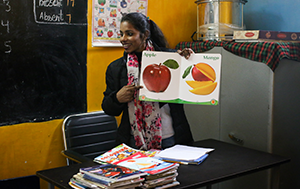
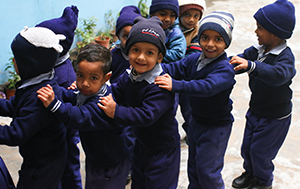
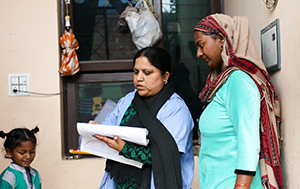





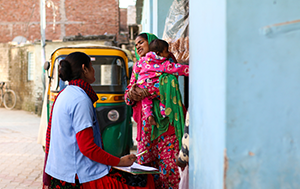
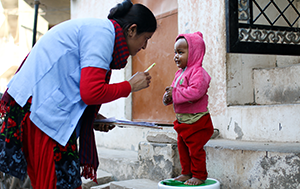
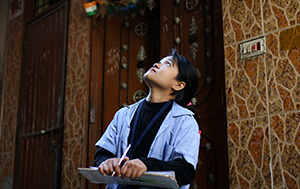
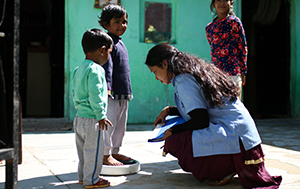
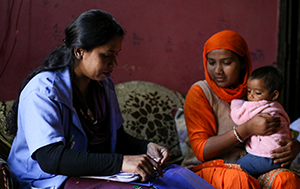
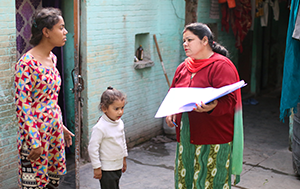




ABOUT US
Developing Indigenous Resources India (DIR-INDIA) is a Non-Profit and Charitable trust .
ALL CONTACTS
- #705-C, ADARSH NAGAR, NAYAGAON, DIST. SAS NAGAR, MOHALI, PUNJAB-160103
- Office +91 0172-5034227
- [email protected]
-
Monday - Friday:
09.00 AM - 05:00 PM
-
2021. All Rights Reserved. | Web design & Development By WebHopers


